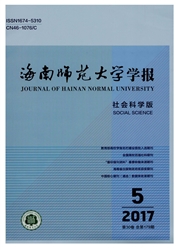

 中文摘要:
中文摘要:
《我的丁一之旅》中建构爱情与戏剧乌托邦的诗人丁一与现实中执迷于爱情与诗歌童话的诗人顾城存在互文性的精神关联。顾城之死喻示极致即绝境,这是所有乌托邦实有化的原罪,包括爱与美的乌托邦。史铁生则通过丁一失败的爱情实验与最后的死亡,表达对理想乌托邦化的警醒,并反思欲望、想象、自由的边界。顾城与丁一爱与美的乌托邦冲动与他们所处的历史语境与创伤记忆有关,折射了诗人潜意识里借爱情与艺术疗救"文革"恐惧与伤痛的隐秘欲望。二者的悲剧在于将爱与美推向极致的同时,艺术与爱情乌托邦的"毒",就难免走向美与善的背离,这实则涉及理想与乌托邦的界线问题。
 英文摘要:
英文摘要:
There is a spiritual connection of intertextuality between Ding Yi,a poet constructing utopian love and drama in My Tour of Ding Yi and the poet Gu Cheng obsessed with love,poetry and fairy tales in reality. The death of Gu Cheng indicates that acme is despair,which is the original sin of all utopian changes,including utopian love and beauty. Based on Ding Yi's unsuccessful love experiment and his ultimate death,Shi Tiesheng has expressed his awakening of utopian ideal and has reflected on desire,imagination and the boundary of freedom. Gu Cheng's and Ding Yi's utopian impulse for love and beauty is related with the historical context in which they are and with their respective memory of traumas,which embodies their secret desire in their subconsciousness to treat and cure their fear of and pains relevant to the Cultural Revolution by means of poetry and love. The tragedy of the two poets lies in the fact that though they managed to carry love and beauty to the extreme,they were definitely"poisoned by utopian art and love,thus turning against beauty and benevolence,which is virtually the boundary between ideals and utopia.
 同期刊论文项目
同期刊论文项目
 同项目期刊论文
同项目期刊论文
 期刊信息
期刊信息
